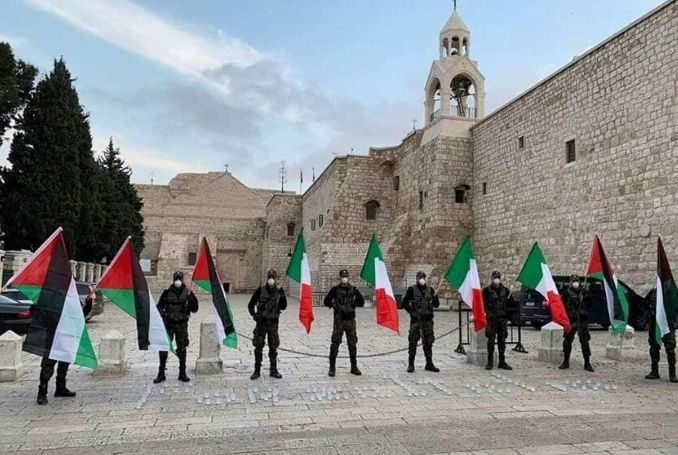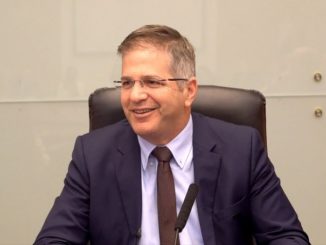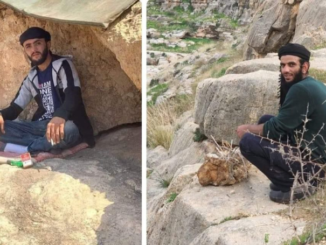
By Benay Blend
“We’ve got to face the fact that some people say you fight fire best with fire,” said Black Panther Chairman Fred Hampton, “but we say you put fire out best with water. We say you don’t fight racism with racism. We’re gonna fight racism with solidarity.”
For me, this quote stands out while pondering Passover in this year of a not quite post-Covid reality. Among the many worrisome aspects of this holiday are the 10 plagues, supposedly brought on by God to force Pharoah to liberate the Jewish people.
Blood, frogs, lice, flies, pestilence, boils, hail, locusts, darkness, the killing of the firstborn—it all seems a bit excessive not to mention the needless suffering on the part of the Egyptian population who are not responsible for the iniquities of its leader. Panama, Iraq, Afghanistan—these are only a few of the modern-day circumstances in which the United States as done the same.
Moreover, as participants recite each plague a drop of wine is spilled in remembrance of the Jewish liberation that caused suffering to the Egyptian people, an event very much like the more recent Israeli narrative of the Holocaust generation’s liberation that caused the displacement of the Palestinians.
Usually glossed over in the Israeli redemption story, the Nakba is ongoing today. Nevertheless, some interpretations of the plagues link the redemption of the Israelites from slavery with the ultimate redemption of the world. In connecting the freedom of the Israelites with events preceding the messianic age, the midrash (interpretation) justifies violence by any means necessary to bring about that end.
Again, this calls to mind ongoing violence towards Palestinians since 1948 that the Zionist regime alleges is necessary for the security of the state. Beyond being a plague on the Egyptians, the plagues are also considered a step in the Tikkun Olam (repairing the world), a kabbalistic phrase that has come to mean the pursuit of social justice.
Many contemporary readings of the ten plagues attempt to reconcile the suffering of the enemy with contemporary notions of ethics and social responsibility. Every historical period brings about new interpretations of the liberation story that necessitates the creation of a new set of “plagues” to be eradicated.
Growing up during the civil rights era, my family’s seders focused on the freedom journey of Black Americans. Using the Haggadah (a guide to the seder rituals) edited by the late A. Stanley Dreyfus, we compared the liberation of the Jews from Egypt to the deliverance of the Black Americans from the bondage of segregation.
Still, those seders had the “emotional content of the directions for installing a DVD recorder,” as the poet Marge Piercy put it in her feminist Haggadah, Pesach for the Rest of Us. Read “mostly or entirely in Hebrew as fast as possible,” continues Piercy, “usually by the patriarch of the family,” in my case it was my uncle who was a very fast reader, its no wonder that there have been literally thousands of revisionist books to make the service more meaningful.
One of the most troubling aspects of the holiday is the recitation of the biblical plagues. Many Jews update the narration by substituting contemporary “plagues” such as war, hatred, and disease, certainly relevant in this year of the virus.
“We can name Covid-19 as a modern-day plague,” writes Noah Rubin-Blose, and also name the institutions that are to blame and that benefit.” Since this plague is also a pandemic, it’s important to remember how wealthy countries hoarded the vaccine, and also how Israel has tried to prevent it from reaching Palestinians.
“A global pandemic is a reminder of our interdependence,” continues Rubin-Blose, reminding us, too, of all the prisoners, both here and in Israeli detention, who should be at least provided with proper protection if not freedom from the bondage of their cells.
“Plagues as resistance” is yet another way that Rubin-Blose looks at the ten afflictions. He quotes the 19th century Black anti-slavery activist Frederick Douglass, who alleged that “this struggle may be a moral one, or it may be a physical one, and it may be both moral and physical, but it must be a struggle. Power concedes nothing without a demand. It never did and it never will.”
This year, concludes Rubin-Blose,
“can inspire us to reflect on what are the new and old forms of struggle that we need, to get free. In this time of social distancing when it is not safe to hold a massive march in the streets or even canvass door-to-door, many of us are re-thinking these strategies.”
Aryeh Bernstein, director of the Chicago Justice Fellowship, reflects on this notion of the plagues as resistance but takes it further. Addressing his “fellow progressive Jews,” Bernstein submits that when calling “out terrible things confronting us — racism, capitalism, misogyny, what have you,”, the Jewish people are, in fact, “on the side of the plagues,” which are necessary to defeat the tyrants who are oppressing those below them.
Instead, Bernstein suggests that all of the present-day evils—“racism, capitalism, misogyny,” and I would also add settler-colonialism here—are “contemporary manifestations of Phara’oh,” not the plagues, which “we pray for, if necessary…to come back and break the regimes of all modern day tyrants who are supporting a variety of ongoing plagues.
Reflecting on the myriad ways that Pesach can speak to our needs today, Piercy concludes that “what all of these various desires have in common is a desire for connection: to what is eternal or to our history or to our people or to those animal and vegetable with whom we share this earth, or to those who are suffering or to those who seek to make the world fairer and gentler and better.”
The holiday provides an opening into what Fred Hampton called out in the opening quote as the best strategy, the best plague to use to break the hold of the oppressor. In a 2016 lecture entitled “Palestine and Feminist Paradigms” at San Francisco State University where she teaches, Prof. Rabab Abdulhadi referred to “the “the indivisibility of justice,” the notion that “issues of gender equality, queer rights, and the liberation of Palestine [are] part of the same project.”
In short, solidarity means that there is no way to be “Progressive Except Palestine” that is acceptable in current struggles. For the Pesach ritual to give a true sense of connection, then, in terms of global social justice, it is necessary for Palestinian liberation to have a center seat at the Seder table.
– Benay Blend earned her doctorate in American Studies from the University of New Mexico. Her scholarly works include Douglas Vakoch and Sam Mickey, Eds. (2017), “’Neither Homeland Nor Exile are Words’: ‘Situated Knowledge’ in the Works of Palestinian and Native American Writers”. She contributed this article to The Palestine Chronicle.

– Benay Blend earned her doctorate in American Studies from the University of New Mexico. Her scholarly works include Douglas Vakoch and Sam Mickey, Eds. (2017), “’Neither Homeland Nor Exile are Words’: ‘Situated Knowledge’ in the Works of Palestinian and Native American Writers”. She contributed this article to The Palestine Chronicle.







